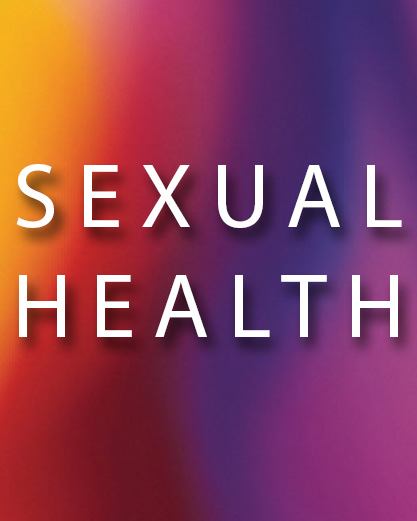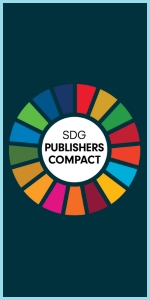Men who have sex with men bear the bulk of new HIV infections in the United States. Interventions such as pre-exposure prophylaxis (PrEP), a medication that prevents HIV when taken as directed, have reduced HIV infections greatly; however, there are gaps in protection. New tools such as a long-acting injectable form of PrEP can promote further drops in HIV incidence. In this study, we investigate who might be interested in transitioning to this new modality.

Sexual Health
Volume 21 Number 6 2024
Understanding the relationship between psychological constructs, such as self-efficacy, and sexual risk-taking behaviours is key. This study examines associations between identity resilience – self-efficacy and frequency of both condomless sexual encounters and drug use in sexualised settings in a sample of heterosexual and gay men. Higher identity resilience – self-efficacy was found to be associated with greater sexual risk-taking behaviours in gay men only.
For people living with HIV (PLHIV), sexual satisfaction can be challenging because of stigma, discrimination, or fears surrounding onward transmission. This article investigates sexual satisfaction among PLHIV, demonstrating high levels of sexual dissatisfaction associated with avoiding sex due to HIV status, concerns about drug use, older age, and poor self-reported health. These findings highlight that supporting PLHIV extends beyond biomedical considerations (e.g. HIV treatment), demanding a holistic approach that tackles stigma and other health concerns.
SH24103 Abstract | SH24103 Full Text | SH24103PDF (398 KB) Open Access Article
More than one in five Chinese adults aged 50 years or older might face sexual dissatisfaction, and compared with men, women are more likely to experience sexual dissatisfaction. Sexual dissatisfaction was linked to poor health status, such as depressive symptoms and comorbidities of common chronic diseases. Sexual satisfaction, a corner stone of sexual health, warrants scholarly and medical attention, especially for older adults and women, to ensure health longevity.
This article belongs to the collection: Sexual health among older adults: A multi-disciplinary collection.
SH24016 Abstract | SH24016 Full Text | SH24016PDF (427 KB) Open Access Article
This study examined how drug use during sex affects sexual behaviours among men who have sex with men in China. Through a nationwide survey of 796 participants, we found that men who used specific psychoactive drugs during sex (chemsex) showed different patterns compared to other groups. They reported more sexual partners, engaged in a wider variety of sexual activities, and showed distinct patterns of sequential sexual behaviours. These findings help identify risks and inform targeted health interventions.
SH24173 Abstract | SH24173 Full Text | SH24173PDF (684 KB) | SH24173Supplementary Material (2.5 MB) Open Access Article
There is limited understanding of the preferences of the general public for the provision of early abortion services, including surgical and early medical abortion. Discrete choice experiments are an ideal means to investigate the preferences for abortion services in Australia. There is a pressing need for increased education and awareness regarding the types of abortion services available and the range of healthcare providers capable of delivering safe and effective abortion services.
SH24112 Abstract | SH24112 Full Text | SH24112PDF (315 KB) | SH24112Supplementary Material (1.6 MB) Open Access Article
New Zealand has high rates of antimicrobial resistance in Mycoplasma genitalium. We correlated treatment outcomes with resistance markers and found excellent outcomes for macrolide-sensitive infections, or those without parC mutations, with first-line resistance-guided therapies. There were lower cure rates for infections with both macrolide and parC mutations, offering opportunities to refine management of M. genitalium infections.
Co-creation is a community engagement methodology that aims to create a shared leadership role of program beneficiaries in the development and implementation of programs. We conducted a co-creation process to develop a community-engaged implementation strategy to enhance service uptake among a sexual minority sub-population in China. This paper describes the co-creation process and may help inform future co-creation practices in generating contextually appropriate public health solutions.
SH23149 Abstract | SH23149 Full Text | SH23149PDF (4.1 MB) Open Access Article
The best method for measuring a history of Chlamydia trachomatis (CT) infections is unknown. We examined the reliability of three methods as markers of past CT infections: IgG serum antibodies, the electronic health record (EHR) and self-report. Self-report may be more reliable than the EHR when determining past CT infections in some contexts, whereas serum antibodies measured using newer seroassays can capture asymptomatic and/or undiagnosed infections.
Sexual health research and community engagement projects often focus on youth and neglect middle-aged and older adults. This research demonstrates that crowdsourcing open calls and co-creation activities focused on sexual health are feasible among middle-aged and older adults, including those with disabilities. Key findings from this study suggest that improving sexual health services for middle-aged and older adults must be addressed at various levels of healthcare service delivery.
This article belongs to the collection: Sexual health among older adults: A multi-disciplinary collection.
SH24143 Abstract | SH24143 Full Text | SH24143PDF (866 KB) | SH24143Supplementary Material (26.4 MB) Open Access Article
Sexual health service engagement among young people is important and needs may vary depending on relationship status. We explored use of five different sexual health services and found that, in general, engagement was low and those in relationships were more likely to have used services for free condoms, to start the pill, and for pregnancy testing. Healthcare and relationship and sexual education providers should encourage all young people to engage with sexual health services, whatever their relationship status.
Pre-exposure prophylaxis (PrEP) is a medication used to stop people from acquiring the HIV virus and is a key part of reducing HIV rates worldwide. We investigated the Australian GP perspective on PrEP, and found half of our participants lacked knowledge on PrEP, half were not confident prescribing it, and key barriers were difficulty identifying suitable patients and lack of time. GPs need support to provide PrEP, with paid training and Medicare item numbers that encourage PrEP prescribing.
SH24018 Abstract | SH24018 Full Text | SH24018PDF (248 KB) | SH24018Supplementary Material (1.2 MB) Open Access Article
PrEP has been attributed to increased rates of STIs due to condomless anal sex, but little is known about how gay, bisexual and queer men (GBQM) perceive PrEP and STIs and how these perceptions influence sexual behaviours. This study is the first longitudinal qualitative research that explores the experiences and attitudes of GBQM using PrEP in Canada. Understanding GBQM’s perspectives can inform the development of more effective strategies to promote safer sexual practices and mitigate the spread of STIs within and beyond GBQM communities.
SH23195 Abstract | SH23195 Full Text | SH23195PDF (276 KB) Open Access Article
Many sexual health services neglect older adults, defined here as people 60 years and older. Physicians sometimes assume that older adults do not have sex. This editorial describes why we should focus more on the sexual health of older adults. More research, programs, and policies are needed to support sexual health among older people.
This article belongs to the Collection Sexual health among older adults: A multi-disciplinary collection.
SH24137 Abstract | SH24137 Full Text | SH24137PDF (160 KB) Open Access Article
Amid the COVID-19 pandemic, societal shifts prompted a retrospective study on sexually transmitted infections in Taiwan. Gonorrhea cases surged despite pandemic measures, contrasting declines in syphilis, HIV, and enterovirus during the pandemic. This highlights gonorrhea’s resilience and calls for deeper investigations into its dynamics amid crises. The study underscores the complexity of public health management during pandemics and emphasizes the importance of comprehensive surveillance.
As a consequence of COVID-19, sexual health clinics in Australia adopted the use of telehealth for the routine care of people living with HIV. Telehealth has been positively evaluated among this population. Hybrid models between in-person and telehealth conjunction were suggested for the future care model.
SH24067 Abstract | SH24067 Full Text | SH24067PDF (238 KB) Open Access Article
In the past 10 years, the prevalence of high-risk human papillomavirus infection has shown a decreasing trend, whereas the detection prevalence of cervical lesions has shown an upward trend among women in Karamay City, China. Importantly, particular emphasis should be placed on cervical cancer screening in women aged >55 years.
SH24057 Abstract | SH24057 Full Text | SH24057PDF (900 KB) Open Access Article
Despite improvements in treatment, there remain important gaps in quality of life for people recently diagnosed with HIV. Through interviews with people diagnosed with HIV between 2016 and 2021 at a sexual health clinic in Sydney, Australia, this study aimed to understand experiences of recent diagnosis and care. Findings suggest that more opportunities for discussions about sex and dating in early years of diagnosis and checking understandings of key health messages may promote improved care and quality of life.
SH24045 Abstract | SH24045 Full Text | SH24045PDF (238 KB) Open Access Article
Globally, gay, bisexual and other men who have sex with men (GBMSM) are at higher risk for HIV and STIs due to behaviours such as condomless sex and multiple sexual partners. GBMSM engaging in transactional sex heightens the risk of these occurrences. The study examines the prevalence and factors associated with transactional sex among GBMSM in Kathmandu Valley, Nepal, revealing that 16.4% of participants engaged in transactional sex in the past 6 months. Key factors include financial dependants and police detention, whereas condomless sex was less likely among those engaging in transactional sex. The findings underscore the need for targeted sexual health interventions and policies tailored to the specific needs of this high-risk group.
We found that one in four parents were aware that their child had seen pornography. Fewer than half had ever spoken to their child about pornography. Parents believe that educating children about pornography is important, but they require support to do this with their children.




